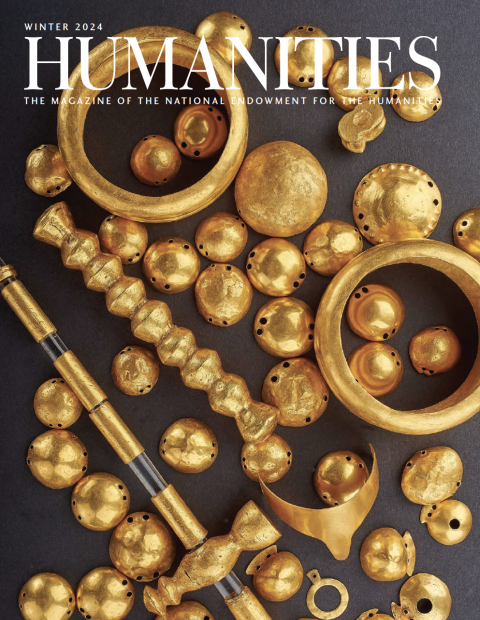Imagine living in a different historical era. Do you picture yourself as a Roman senator, a scholar in the Middle Ages, a noble in the court of Elizabeth I?
When we imagine traveling back in time, many of us imagine ourselves in positions of power. But the odds are low that any single person will be among the few, the rich, and the powerful. It is much more likely for a human being to be among the many, the poor, and the powerless.
Now take this splash of cold water and make a museum exhibition: It is what the Field Museum in Chicago just did. More surprising still, they did it with an exhibition of beautiful royal artifacts from the Neolithic period through the Iron Age. Our writer, Ada Palmer, takes us through the mind-bending “First Kings of Europe” and follows its provocative argument.
In crossing eras and cultures, surprising things happen. Steve Moyer explores the phenomenon of relay translation. It happens when a work of literature is translated not from its original language but from another translation. More than a curiosity, Moyer shows, it has helped transform at least one nation’s literature.
Klezmer music has crossed many national boundaries. Musician and music historian Yale Strom sketches the history of this striking, celebratory genre and its great ambassador Dave Tarras, whom the New York Times once called the Isaac Bashevis Singer of Yiddish music.
Not a few time travelers imagine themselves as artists, maybe even struggling artists. But do they imagine themselves as women artists in a male-dominated system of studios, schools, and patronage? It’s a thought you will have to entertain while reading of the beautiful, lavish exhibition “Making Her Mark: A History of Women Artists in Europe, 1400–1800” at the Baltimore Museum of Art.
Shaun T. Griffin has been writing a quarterly online column for Humanities called “The Line on Poetry,” which is well worth seeking out on our website. In his latest contribution, here in this issue, he examines the work of Layli Long Soldier, the Oglala Lakota poet whose work also appears, coincidentally, in a photo in “Itinerary,” our roundup of images from NEH Chair Shelly Lowe’s travels.
NEH’s Public Scholars grants have supported great, award-winning, quality nonfiction across humanities disciplines. It has been a boon to readers of Humanities, no less in this issue, where we have excerpted superb writing from the new State of Silence: The Espionage Act and the Rise of America’s Secrecy Regime by Sam Lebovic and from Time’s Echo: The Second World War, the Holocaust, and the Music of Remembrance by Jeremy Eichler, which was just named history book of the year by the Sunday Times of London.

